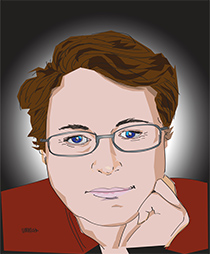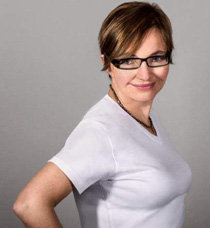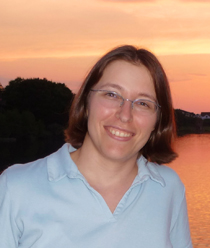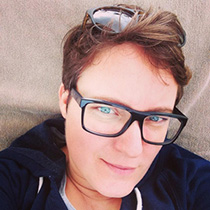Hey there! We’ve got something special prepared for our first entries of 2024—a two-part blog post series where we talk with some of the best-selling lesbian romance authors out there!
Jae, Lee Winter, Clare Lydon, and Harper Bliss spilled the beans on their processes and the wisdom they’ve gained over their careers. Read on to get writing and marketing advice from super-successful sapphic fiction authors—today we talk about genres, tropes, and social media! If you’re a reader or a writer, this interview series will shed light and share insight into the lesbian romance world, so don’t miss out!
GENRE AND TROPES IN SAPPHIC FICTION: WHAT WORKS AND WHAT DOESN’T
You’ve been writing sapphic fiction for a long time. Could you talk a bit about your most and least successful books?
Lee Winter: The most successful is probably The Brutal Truth. People still talk about it with so much love to this day. I’m not entirely sure why it prevails above all else. It has the media mogul/boss and assistant trope. But I think maybe it has to do with longing. I enjoyed the way the protagonists connected with each other early, longed for each other, but didn’t act on it (for a few reasons) until much later. It also doesn’t have a third-act breakup, which makes it a little out of the ordinary.
I learned from that book that I will always enjoy writing CEO romances. Competence porn is delicious to write and read.

Lee Winter
My least successful book is Shattered, and that’s partly because it’s a sci-fi. It’s a smaller readership, given its genre. Yes, it won a Goldie and was critically acclaimed, but it was also slammed by those readers who expected there to be an HEA (Happily Ever After) for the lesbian pair who helped each other on their journey of self-discovery.
To my mind, they did find happiness—but not with each other. They desperately needed each other [in order] to grow, get out of their ruts, and stop living in the past, but they weren’t really compatible beyond friendship and desire. Shattergirl/Nyah, a scientist, needed her open space and her intellectual match to be entirely happy in a relationship. And Lena needed to be in a city and with someone a little…messy—in all senses! They make great friends, though.
I learned from that book that expectations are everything in writing. You have to communicate very, very clearly and often that this is a sci-fi and NOT A ROMANCE, so those HEA expectations aren’t built up.
Readers being disappointed at not receiving what they thought they were getting is something I never want to have happen again. In fact, now, every time someone mentions Shattered, I go to enormous and almost hilarious pains to announce that it’s not a romance, so there are no problems with it not matching readers’ expectations.
Since its release, though, it’s had a bit of a revival as readers have found it and read it for what it is: an otherworldly tale filled with deep friendship, big questions, lesbian sex, and some social commentary.

Clare Lydon
Clare Lydon: My most successful book was and still is Before You Say I Do. It’s been translated by Ylva into German, it’s been released in Portuguese and Italian, too, and it’s done equally well in every market. I had a feeling about that book when I came up with the idea. I sat on the story for 18 months before I wrote it, and it just flowed out of me. You never know if a book will do well, but you hope. What did I learn from that? Keep your ears open for inspiration, and when an idea hits you in the gut, trust that feeling.
My least successful book? That was probably The Long Weekend, if we’re talking stand-alone. I like to say it’s a cult classic. It’s my only book that’s not a romance–it does have romance in it, but it’s about a group of friends, and some get a happy ending, some don’t. Even though it didn’t sell all that well, I still think it’s a good book that shows a different side to my writing. But if I want bigger sales, sapphic fiction doesn’t sell as well as sapphic romance. That’s what I learned. My other flop sales-wise was Big London Dreams, the eighth book in my London Romance series. I think it’s one of the best books I’ve ever written, but it bombed. Go figure!
Jae, Harper, you are also long-standing authors of women-loving-women fiction! Could you share some insights into what you’ve learned from your most and least successful lesbian romances?
Jae: The most successful depends on how you define “success”—the one that sold best, won most awards, or gets most often mentioned as a reader favorite.

Jae
One that is at or near the top of the list in all of these regards is Wrong Number, Right Woman. It’s a low-angst, feel-good romance between Denny, a 41-year-old shy butch with love handles, and Eliza, a 30-year-old extroverted woman who assumes herself to be straight. They meet after Eliza sends Denny an accidental text asking for advice on what to wear on a date.
What I learned from its success:
How important that overlap between what I want to write and what readers want to read is. The book was written during the first lockdown and published during the pandemic, when both readers and I needed a feel-good book.
How important it is for a book to fit the author’s brand. I think I’m well-known for writing two things: slow-burn romances and relatable everyday characters. Denny works as a cashier, struggles to make ends meet, and has love handles and a cowlick, and yet she’s one of my most popular characters because she fits what my audience loves about my books.
How important a captivating blurb and beginning are. Nowadays, readers can choose from hundreds of new releases every month. I think the premise and blurb of Wrong Number, Right Woman—two women who meet via an accidental text—are unique, and its beginning with good forward momentum, fun dialogue, and no info dumps help captivate readers who read the excerpt.
I would say my least successful book is Good Enough to Eat. While it has won awards and has its fans, it has sold the fewest copies.
What I learned from it:
Genre matters. Good Enough to Eat is a paranormal romance, and that genre is less popular with readers, who mostly prefer contemporary romance. There are people who will never read a lesbian vampire romance, no matter how well it’s written.
Harper Bliss: In my experience, my number one tip if you want your romance to sell well is don’t write about death in any shape or form. (Or, weirdly, rock stars.)

Harper Bliss
My most successful book is About That Kiss, about two actors working on a lesbian rom-com together. One is deep in the closet; the other is straight. It’s a light, fun, and sexy celebrity romance that I wrote in about a month while struggling with another book that just wouldn’t come together. The reason why it was so successful, in my opinion, is that while being glamorous and lighthearted, it also touches on the subject of coming out, which is something most queer readers can identify with.
I have a couple of books that haven’t done so well, but I’ll pick one to illustrate my first point. A Breathless Place is, in my humble opinion, the best book I’ve ever written. It’s about a famous singer who loses her voice and her will to live. It has a trigger warning for mentions of suicide, even though it’s an extremely hopeful book—but the journey is quite difficult. I completely understand why a book like that wouldn’t reach that many readers, but I will never regret writing it. Since then, I haven’t written anything like that anymore, and my stories have become lighter—maybe because I had to write A Breathless Place first.
CONNECTING WITH WOMEN-LOVING-WOMEN AUDIENCES: NAVIGATING SOCIAL MEDIA
Social media can be a hard place to be in, and something lots of authors even dislike. But do you find it important for connecting with audiences? Do you have tips for lesbian romance authors who want to connect with readers?
Lee Winter: My number one tip is to don’t just turn up to flog your books to readers, then disappear. Turn up and engage. Join in on interesting topics, debates, fun stuff, silly stuff, things that aren’t even remotely related to your book. Talk about other lesfic books you’ve read and loved. Books from other publishing houses! That’s allowed, truly! Enthuse about the things that interest you.
Readers know very well who the authors are who just blip in, drop a blurb and a link, and sod off again, treating them like a PEZ machine for book sales. It feels disrespectful to them, and they do notice. So either commit to being a real person, with thoughts and interests outside of being a book marketer, or consider avoiding social media altogether.
If you don’t know how to get started, there are a number of Facebook lesfic groups that have thousands of readers as members where you can join in the conversations and get better-known. There’s Jae’s group and TLR (The Lesbian Review) just for starters. Ask around with fellow authors or readers to see which ones might suit you. Some have a “no marketing your own book” edict, so check their individual rules first.
Lastly, get your own website. It doesn’t have to be fancy, but for readers, especially those not on social media, it’ll be a golden resource. All your books in one handy space, all laid out in easy-to-find detail? It’s essential. You don’t have to sell your books from there, but be sure to include links to the major booksellers who do have your product.
Clare Lydon: I’d say be present on the ones you like, but don’t hammer your books relentlessly. Be yourself, be authentic. I don’t expect to get direct book sales from social media, but it’s a great way to show readers what you’re up to, remind them of your backlist, give them news of fresh releases, sales, podcasts, interviews, etc. out into the world. I don’t get involved in social media drama, it’s not my jam. I’d say use it to reach readers and to be social, but don’t get sucked in to anything else. Life’s too short.
Jae: While social media is not the most important thing, it’s certainly a great way to interact with your readers.
My advice regarding social media:
- You don’t have to be everywhere. Pick two platforms you enjoy and post regularly rather than trying to do it all.
- When picking a social media platform, make sure it’s a platform that fits your genre. Find out where your audience hangs out.
- Learn the customs and unspoken rules of the social media platforms you picked, e.g., Bluesky uses keywords, not hashtags, etc.
- Be an authentic human being. Interact with readers instead of just shouting “buy my book” all the time.
- Make good use of photos, images, and video—they draw the eye more than text does.
- Be a fan of your genre. Talk about the books you enjoy reading, not just about your own books.
Harper Bliss: I’m on Facebook and Instagram, but I only post. I don’t follow anyone because my brain simply can’t handle that. (For that reason, I also stay far away from X [Twitter].)
Years ago, I quit socials completely, but I’ve returned since because I do want to connect with readers in some ways, and Facebook makes it so easy. I have a private Facebook group for my readers where I interact and post stuff only for them. Then I also have my Facebook page and Instagram (and a TikTok account I don’t really know what to do with.) 😉
My only tip would be: by all means, use social media to connect, but don’t let it take away from your precious writing time because creation makes your life so much better than watching pictures of other people’s lunch/pets. (I use 1Focus, a very cheap and effective app, whenever my hunt for a socials dopamine fix gets the better of me—and it does so often.)
And that’s a wrap on Part 1! Sapphic fiction, being a unique niche, doesn’t always follow the same rules as more mainstream publishing. That’s why getting insights from successful authors who specialize in women-loving-women stories is not just empowering but also an amazing chance to gain knowledge and dive deeper into the world of publishing lesbian romances. We trust you had a blast with this initial instalment! Stay tuned for the upcoming Part 2 – it’s on its way to the Ylva Blog real soon!


I’m not on any social media at all, whatsoever; don’t even know how the whole thing works. As a bookworm, I’m interested in books, not a whole lot of palaver. If I like an author’s books, I jolly well buy them and that’s it.
That said, I very much appreciate Ylva’s newsletter since it keeps me informed. Also Clare Lydon’s newsletter is so entertaining and she has a way with words that is captivating.
Up with Ylva!
Vee
Thank you, Ylva, for this interesting blog, and thanks to Jae for highlighting it in her Sapphic Quill newsletter. I’m looking forward to reading Part 2. (And also some other topics on your blog.)
[…] you haven’t caught the first part yet, no worries – check it out here (we dished on genres, tropes of sapphic fiction, and the wild world of social media!). Now, […]